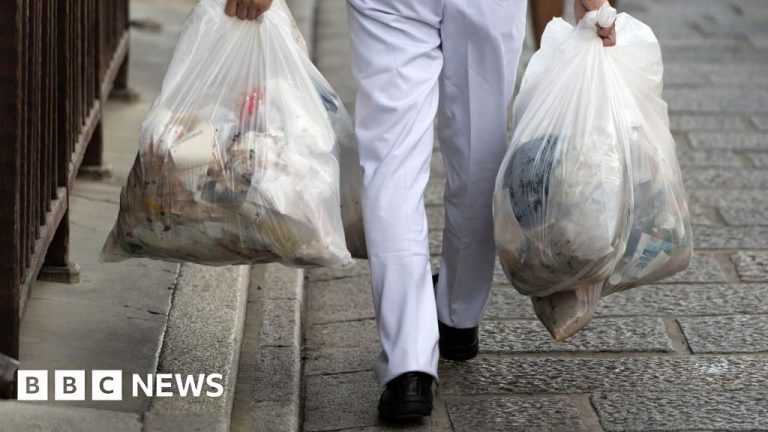For the uninitiated, sorting your waste can be a complicated process in Japan, a country with one of the strictest waste disposal rules in the world.
But in the city of Fukushima, the situation is about to get even more difficult.
Starting in March, the municipality will examine waste bags that do not comply with regulations – such as those that have not been sorted correctly or exceed size limits – and, in some cases, publicly identify their owners.
The new regulations, adopted Tuesday at a town meeting, come as part of Japan's long-standing effort to improve its waste management system.
While many Japanese cities open trash bags for inspection, and some allow disclosure of offending businesses, Fukushima is reportedly the first city to consider releasing the names of individuals and businesses, according to local media.
Last year, Fukushima reported more than 9,000 cases of non-compliant waste.
Currently, instead of picking up trash that violates disposal rules, workers typically stick stickers on trash bags informing residents of the violation. Residents should then bring their trash inside, sort it again and hope they manage to get it right the next time the collectors come.
Under Fukushima's new rules, if waste is not sorted for a week, municipal officials can go through it and try to identify violators through items such as mail. Violators will receive a verbal warning, followed by a written notice, before the last resort: publication of their name on the government website.
Due to privacy concerns, Fukushima authorities said the waste inspection would be carried out in private.
Japanese cities each have their own guides on how to dispose of waste. In Fukushima, trash bags must be dropped off at collection points every morning before 8:30 a.m. – but cannot be left out the day before.
Different types of waste – separated into combustible, non-combustible and recyclable – are collected on different schedules.
For items larger than the listed dimensions, such as appliances and furniture, residents must make an appointment to have them collected separately.
Fukushima Mayor Hiroshi Kohata said the new rules aim to promote waste reduction and proper disposal methods.
“There is nothing illegal about publicizing malicious waste generators who do not follow the rules and follow the city's advice and guidance,” authorities were quoted as saying by Mainichi.
Waste is taken very seriously in Japan where, since the 1990s, the government has set a national goal to abandon landfills, reduce waste and promote recycling. Local authorities have launched their own initiatives towards this objective.
Residents of Kamikatsu, a Japanese city with an ambitious zero waste goal, proudly sort their waste into 45 categories. Kagoshima Prefecture has made it mandatory for residents to write their names on their trash bags. And last year, the city of Chiba piloted an AI assistant to help residents properly dispose of their waste.

